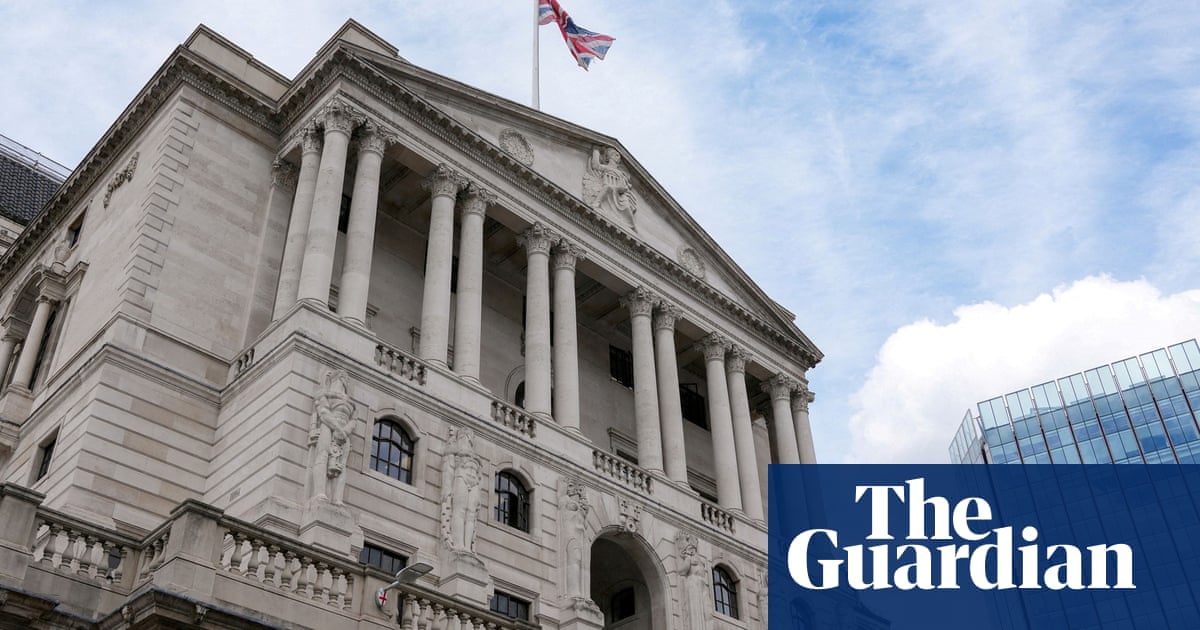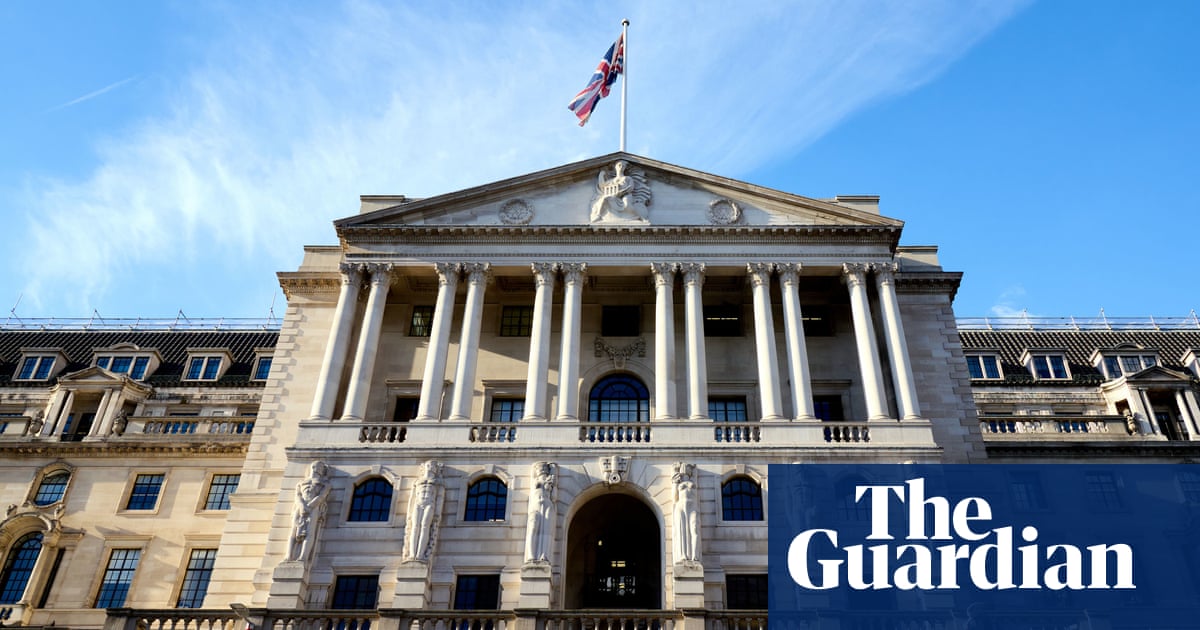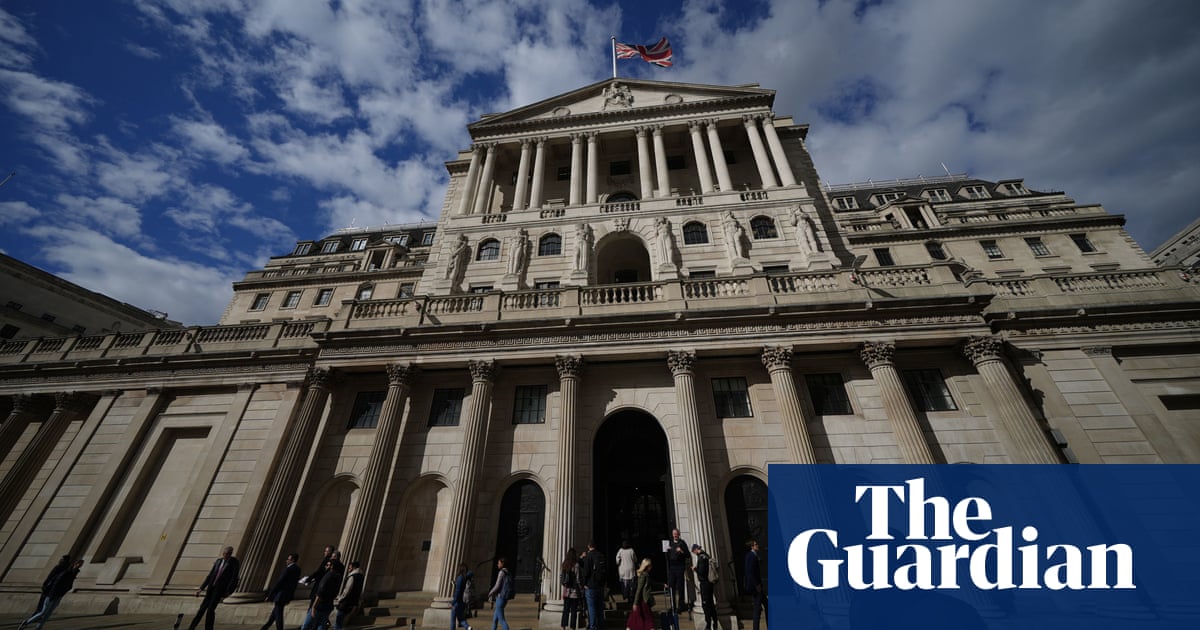
The Bank of England has raised interest rates for a second time in three months, to 0.5%, as it warned that surging energy bills would push inflation higher than expected, to more than 7% by April.
Warning that families faced the biggest fall in their disposable income for three decades this year, the Bank’s rate-setting monetary policy committee voted by a narrow majority to raise its base rate from 0.25% to tackle soaring inflationary pressures.
Signalling a growing split on the nine-member committee (MPC), four members voted for a more aggressive increase to 0.75% to tackle rising prices and bring them more swiftly back to the Bank’s 2% inflation target.
In a downbeat assessment of Britain’s economic prospects, Threadneedle Street forecast families’ disposable incomes would shrink by 2% this year, the biggest drop since comparable records began in 1990.
The pound rose on the international currency markets by 0.3% against the US dollar to trade close to $1.36. Financial markets are likely to view the vote as a measure of the central bank’s determination to take an independent stance in its mission to reduce inflation, with MPC members setting aside the negative impact that higher borrowing costs are likely to have on the economy’s ability to grow.
All members of the committee voted to start the process of reducing the Bank’s £895bn quantitative-easing bond-buying programme, built up over the past decade since the 2008 financial crisis, which was added to during the Covid-19 pandemic. The MPC said it would choose not to reinvest the proceeds of maturing bonds, in a process that would reduce its stock of assets by £70bn over the next two years.
The move to raise rates to 0.5%, which was widely anticipated by City economists, comes after the official measure of annual inflation hit a 30-year high of 5.4% in December, an increase fuelled by a sharp rise in household energy bills and supply chain logjams pushing up the cost of the weekly shop.
Against a backdrop of rising household energy prices, the Bank said inflation was on course to peak close to 7.25% in April, a sharp adjustment to its previous forecast of 6%.
The central bank said it would continue to raise rates this year and next, to 1.5% by mid-2023.
Officials said rising gas prices were the main factor driving the jump in inflation over the next few months to its highest level since August 1991. A tight labour market, in which wages jumped amid an increase in job vacancies to record levels, was another factor pushing up the prices of goods in the shops, the MPC said.
The interest rate rise followed Rishi Sunak’s announcement of plans to give all households a repayable £200 discount on their energy bills in response to Ofgem, the energy regulator, increasing the dual-fuel price cap by £693 from April, to £1,971 a year. Low-income households will also receive further support under the chancellor’s plans.
Illustrating the last-minute nature of Sunak’s rescue deal, the Bank was briefed before the announcement, but too late for the possible impact to be included in any of its forecasts. Asked if the government’s cost-of-living rescue package had been factored in to its inflation forecast, Bank officials said it was only able to make an assumption about a possible deal.
The MPC said uncertainty about the economic impact of the Omicron variant of coronavirus had declined, and its consequences for jobs and growth were likely to be more limited than feared in December. Despite concerns over the renewed wave in the pandemic, the Bank raised interest rates from the record low of 0.1% to 0.25% in December.
However, Threadneedle Street said the economy was expected to slow over the next two years and unemployment was set to rise. Despite current record numbers of job vacancies, it said unemployment was likely to increase from the current level of 4.1% to 5% in 2023, while forecasting a slowdown for GDP growth to 1.25% next year and 1% in the general election year 2024.












